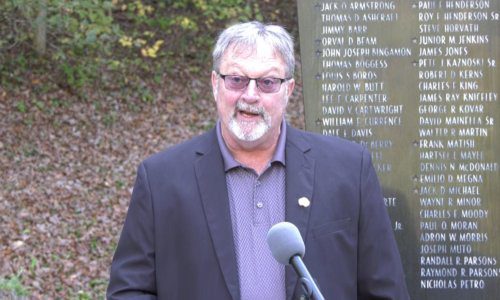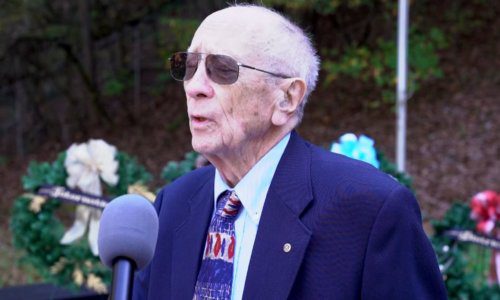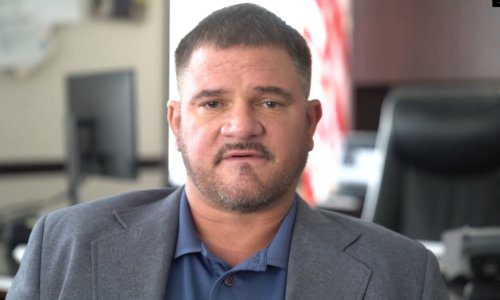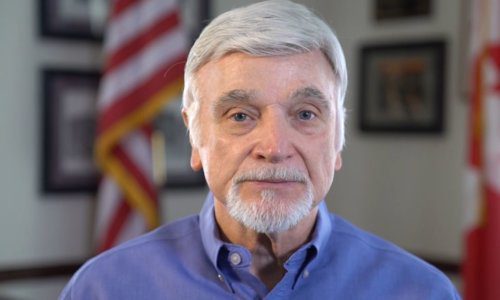Source: Times West Virginian
November 14, 2021
MANNINGTON — West Virginians are especially watchful of coal miners and their families.
Marion County residents are protective of the history of one tragic event that happened right here in our backyard.
On Nov. 20, 1968, the Farmington No. 9 mine exploded, killing 78 of the miners trapped inside.
Those miners and their families were honored Sunday at the Farmington No. 9 Mine Disaster Memorial on Flat Run Road in Mannington during a ceremony coordinated by District 31 of the United Mine Workers of America.

On the day of the explosion, tremors were heard miles away. At the site, flames reached 150 feet into the air. The fire continued for a week. After nine days, rescue crews were told that there was no possibility of finding any survivors.
The mine was sealed later that month to squelch the fires still burning within. Nearly a year later, the mine was unsealed in an attempt to recover the missing miners’ bodies. The search continued until April 1978, at which point the bodies of 19 miners had still not been found.
Although Sunday’s ceremony was virtual, several speakers and family members were there to lay wreaths and participate in the service.
“Not only did [the explosion] rock the hills, but also the lives of the widows, the mothers, the fathers, the children, the grandchildren and the grandparents,” said UMWA District 31 Vice President Rick Altman, presiding over the service.
Also on hand was Rev. Richard Bowyer, who has been involved in the memorial service since its inception.
“After coming to Fairmont, I was elected to the board of directors of the Fairmont Clinic, which, in those days was primarily a clinic serving coal miners and their families,” Bowyer said.

Three months before the deadly explosion, Bowyer was given a tour of No. 9.
“Some of us spent about two hours in a complete tour of Farmington No. 9,” Bowyer said. “It’s the only coal mine I was ever in and I’ve not been inside a mine since that time.”
When the explosion occurred, Bowyer was sent in as the lead pastor on site to assist. As events unfolded, Bowyer’s role was to “assist those who were responding to the suffering and agony and grief of the families and loved ones of those who were trapped below,” Bowyer said.
“This gathering has been extremely meaningful to me in my life, and that total experience has been profound in the shaping of my ministry in subsequent years,” Bowyer said.
UMWA International Secretary-Treasurer Brian Sanson spoke to the group virtually.
“This is a tragedy [where] a coal company blatantly disregarded the safety of miners, and as a result, there was a huge loss of life, affecting generations of families,” Sanson said.

Keynote speaker UMWA President Cecil Roberts spoke about actions of the surviving families that are still relevant today.
“There was not a single law on the books to protect these miners on the federal level,” Roberts said. “There were no orders out there saying, ‘You have to do things this way, company.’
A grassroots movement, started largely by the wives and mothers of the Farmington miners, began to gain strength.
“There was a conversation that was started by the widows, by the family members, locally, that this should never happen to another family in America. [They said], ‘We’re going to Congress, we’re going to demand that the federal government pass health and safety laws to protect all coal miners in this nation,’” Roberts said.
A month after the explosion, a conference was held in Washington, D.C., where Secretary of the Interior Stewart Udall presided. His appraisal of the Farmington disaster was sharp.
“Let me assure you,” Udall said, “the people of this country no longer will accept the disgraceful health and safety record that has characterized this major industry.”

When legislation was proposed, Roberts said he heard the same objections from coal industrialists that he had heard for years.
“The coal industry said, ‘This will put us out of business,’ and we’ve heard that a million times no matter what we’re talking about, whether it’s workers compensation, black lung benefits or making the mines safer,” Roberts said.
Roberts said the mines became safer and remained productive.
A year after the Farmington No. 9 mine explosion, Congress passed the Federal Coal Mine Health and Safety Act of 1969, which most people know as the Coal Act.
“It was the first federal legislation that protects coal miners,” Roberts said. “It gave you a right to a safe working place if you were a coal miner, and it put fines on coal companies if they did the wrong thing.”

To the families of the miners, Sanson said, “Your sacrifices have not been in vain. [You have] ensured strong health and safety laws for coal miners across this country. The work you have done over the decades to ensure that coal miners can go to work and come home safely cannot be measured.”

